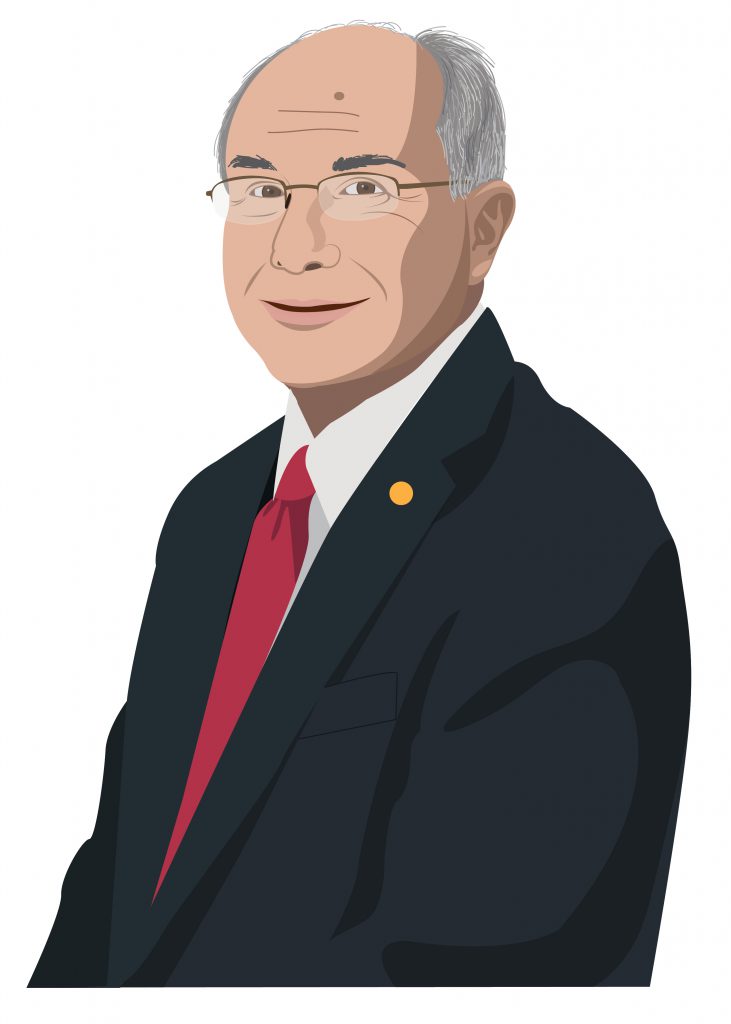
I have been asked to write to you about “fun facts” I have learned as provost. I’m happy to do that, and I’ll try to pass along some relevant and hopefully beneficial observations. Most importantly, like all Harding employees, your job is to support the University’s mission. After all, in President Bruce McLarty’s words, we are “A Community of Mission.” I not only support that notion, but I also believe it. Having the opportunity to work at an intentionally Christian university where my goal has been to demonstrate the integration of faith, learning and living has been a great blessing in my life. As provost, you are charged to lead the academic programs of the University, which fundamentally means you manage and initiate programs that fit within the mission. You must be vigilant that what you do and how you do it always enhances that community of mission and serves students ?by providing them with “a quality education that leads to an understanding and philosophy of life consistent with Christian ideals” found in our mission statement. Your task is noble; pursue it with enthusiasm and joy.
Working in a community of mission blesses you with the opportunity to serve with many Christian faculty, staff and students. Treasure that opportunity. I cannot imagine a better place to spend my career doing tasks I enjoy than one where I am surrounded by men and women of faith who support my professional actions and, more importantly, challenge ?me to grow spiritually. Working, praying, mourning, rejoicing and ?worshiping with colleagues who each day provide examples that ?guide you toward being a better person is an amazing blessing.? I have learned to love and trust, rely on and value co-workers?who are my brothers and sisters. From board members to? chancellors and presidents to freshmen, innumerable people? have touched my life, challenged me to be more like Jesus,? and modeled those behaviors for me to follow. Mentors ?abound. Find and follow them.
While far and away most of your experiences are positive, some will not be. At all. Prepare a thick skin and learn to walk away from some encounters, trying to forget them, although ?many times it is very hard to do so. Surprisingly, not everyone? will agree with all of your decisions. I’ve been called “unchristian” and “a wonderful Christian man” at the beginning and end of the same phone conversation with an upset parent. To make a point,? I asked what was different about the “unchristian” fellow? who had listened to the parent’s rather loud opening comments and the “wonderful Christian man” who was now?talking. We agreed the only difference was that the parent had stopped yelling long enough to learn a bit more? about the situation and, knowing more, understood ?why I had taken the position I had about the student’s? request and that I had offered a workable solution,? supported by University policy. Even my use of this? example demonstrates these encounters are hard to? forget. Simply know they are coming and move on ?as soon and as completely as you can. Your goal ?is to help students; sometimes that entails saying ?no — and meaning it — regardless of the fallout.
Similarly, even our good faculty members will cause you some dismay, often in an attempt to “help” students. I know faculty have students’ best interests at heart, and I know faculty share the responsibility to set University policies. However, I have a saying: “When faculty make policy, bad things happen.” What that means is when faculty, often with the best of intentions, ignore University policy and make statements or decisions based on what they think best serves a student in the moment, they can create really difficult situations for you as the chief academic administrator. With good intentions and open hearts, they steer students in the wrong direction. Your job is to uphold the correct policy from the catalog and to do your best at damage control. Often, the hole is deep and you have a small shovel, but it is your job.
To be clear, joyful moments far outweigh challenging ones. For one difficult encounter, there are many, many uplifting and rewarding ones. Standing onstage at graduation, looking at the faces of the graduates, recognizing many whom you’ve helped, many who have blessed you, seeing so many friends among the faculty, observing and feeling the joy exuding from parents and families of the graduates — in that moment you will know that your job is the best in the world. What a blessing: God has gifted you with the opportunity to serve among Christian brothers and sisters in a kingdom ministry that, student by student, is transforming the world. ?And, once a month, they pay you.
Dr. Larry Long retired in August after serving as the top academic officer at the University since 2004. He joined the faculty in 1976 and was named a distinguished teacher three times and distinguished professor emeritus upon his retirement. His successor is Dr. Marty Spears.